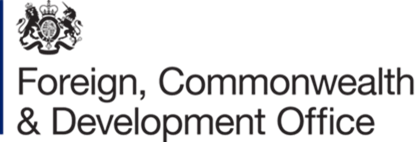
Ismail
Keekeebhai
Interim Financial Accountant
Foreign, Commonwealth and Development Office
Ismail talks through his varied experience in the charity and not for profit sectors, and civil and public service and gives advice to those looking to join the finance sector.
Can you tell us a bit more about your experience so far?
I have just finished the security clearance process of a new Financial Accountant role at the Foreign, Commonwealth & Development Office. This will primarily involve reconciling balance sheet accounts, but it could cover a wide range of responsibilities.
Previously I have held numerous roles mostly in the charity and not for profit sectors, and civil and public services. This includes with The Royal British Legion, Action Aid and the National Literacy Trust. I've also held positions with HMRC and the British Transport Police. Having experience across a wide range of well-known organisations has helped me to secure this latest vacancy.
My degree in Business Management Accounting wasn’t as strong as I would have liked, and I struggled to secure a job after university as a result. I was applying mainly for graduate trainee schemes and didn’t realise how competitive and challenging it would be to secure one.
So, with the support of my parents, I decided to take on the ACA qualification via full time self-study. I didn’t receive any ‘Credits for Prior Learning’ (CPL), which meant starting from scratch. However, working up from the bottom helped me to cultivate a strong work ethic and discipline, which I believe ultimately helped me to pass my exam. I know others who received several CPLs but struggled with the rigour of examinations.
What trends have you noticed taking place in the finance industry?
Employers should avoid solely using the quality of a candidate’s degree as an indicator of their ability. The sector can be very elitist, particularly in London, with roles often reserved for those with top degrees from top universities.
For example, schemes like the Civil Service fast track are brilliant to get graduates into those senior roles quickly, but they feel unfair for those who have years of experience but have come from a less highly educated background.
Personally, I think that more chances should be given to applicants who have come through less traditional avenues, not just those with top-tier degrees. Apprenticeship schemes are one way to provide a leg-up into the sector for candidates from a variety of backgrounds.
What advice would you give to someone starting out in finance?
From my own experience I would recommend remaining open to different routes rather than putting all your energies into securing a highly competitive graduate trainee scheme.
Be open to joining a larger organisation at a junior level, whether that be on reception or in an admin role, and then working your way up. When you leave university, you've likely had very little experience within the field. Not only are junior positions more accessible but climbing the ladder will give you greater opportunities to bolster your experience and develop your skillsets, which will be far more beneficial for your career.
Everyone has their sights set on those senior roles but working hard and having more realistic and humble ambitions is going to give you far more rounded experience. It’s important to keep in mind that the grass is not always greener so just be patient and it will come with time.
Although lots of organisations are embracing hybrid working, I think it's important for those who are freshly qualified to work in the office as much as possible. Being in a busy office environment is far more conducive to learning than being sat in front of your computer at home.
Interacting with team members will give you a greater understanding of how all of the parts of the organisation function and is a good way to find out about different departments which you may want to move into.
As someone who has recently qualified, with potentially less responsibilities at home, or without children to look after, I would suggest making the most of this time. Take every opportunity to socialise in and outside of work and build those relationships with colleagues. Not only will this help with your current role but may also benefit you in the future if a position in a different team comes up, as they will already have a good sense of your character and attitude.
How do you feel the finance industry has changed?
Post COVID, organisations are increasingly opting for a hybrid working model which of course has changed the way that finance teams work. If you do find a job where the organisation is not offering a hybrid model, I would take that as a sign that its technologies and systems are not up to date and that your career is going be segmented as a result.
When I began working, if I needed help, I could easily speak to someone face to face and get the issue resolved quickly, but now you must be proficient in navigating digital communications via emails and instant messenger.
Finance roles were previously chiefly nine-to-five roles, but they now require you to be more flexible and to fit your timetable around others who might work different hours. In a junior position it is particularly important to adapt to their way of working – for example some people don’t like being called without warning. Being organised, accommodating and efficient will put in you good stead for adapting to this new digital working world.
